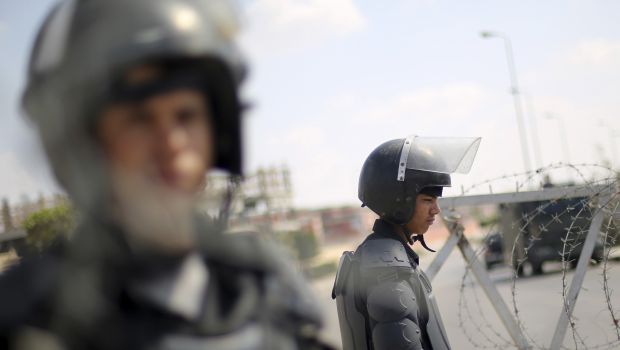Egypt, the UAE and Saudi Arabia have all classified the Muslim Brotherhood as an illegal terrorist organization.
However, even if we classify the group as being outside the law, can we truly implement this decision on the ground? This is a difficult question.
A Saudi royal decree issued on March 7 announced that a special committee formed of different ministries and the country’s security apparatus had designated the Brotherhood, along with other groups, as a “proscribed organization.” In addition to this, the royal order announced that anyone who is a member of these groups, or promotes them in any way, will face punishment.
After Egypt was released from the iron grip of the Brotherhood following the ouster of former president Mohamed Mursi, the authorities in the era of interim Prime Minister Hazem El-Beblawi hesitated to outlaw the group, either out of fear of the reaction of the West and human rights organizations, or reprisals from the group itself. However, Cairo ultimately took the decision to outlaw the Brotherhood and designate it a terrorist organization after a number of terrorist attacks across Egypt it blamed on its supporters.
After the prospect of reconciliation with the Muslim Brotherhood had been raised by figures like well-known Islamic thinker Ahmed Kamal Abu Al-Magd or Cairo University Political Science Professor Hassan Nafaa, interim President Adly Mansour issued a statement saying that reconciliation with the Brotherhood was not on the table, particularly after the outbreak of violence.
The call for reconciliation with the Brotherhood, particularly following the alleged involvement of its members in violence, incited popular anger and dismay among many Egyptians who viewed such calls as a sign of the weakness and laxity of the authorities. One former Muslim Brotherhood member, lawyer Mokhtar Nouh, went so far as to say that any such reconciliation would be “unacceptable” and a “critical strike against the state of law in Egypt,” during an interview with Al-Arabiya. Egypt’s judiciary resolved the matter after an Alexandrian court issued a decision this week ordering the High Presidential Elections Committee not to accept the nomination of any Brotherhood candidates.
Even those who are open to the idea of reconciliation with the Brotherhood, such as presidential candidate Hamdeen Sabahi, have been careful to add that this would be conditional on the group’s abiding by legitimate political practices and the will of the Egyptian people, in addition to respecting the June 30 revolution that ousted Mursi. However, if the Brotherhood were to do this, the group would totally lose all its meaning.
How should one deal with a complex and multifaceted group that excels at political maneuvering, particularly when its members have strong ties to the country’s business sector and economy and a long history in other national sectors, whether we are talking about labor, education or culture?
If you have taken the decision to outlaw such a group, then you must be cautious. And you should not be surprised to find many responsible people, even some within your own government, sympathetic to their plight. Many people will not be looking forward to this battle, whether out of a mistaken view of the Brotherhood’s ideology, or out of fear of the repercussions of such a stand. However there is no room for reconciliation in such battles. This is not personal; it is a battle over the future of political culture. Losing it is unthinkable.
